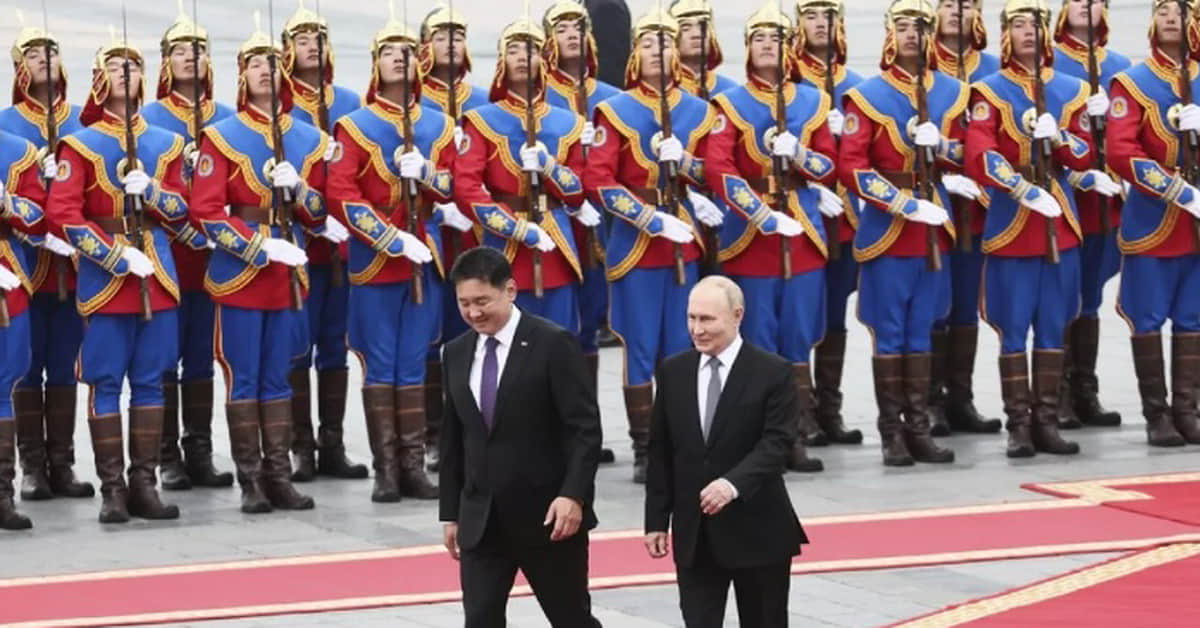Why the West ignored Mongolia's refusal to arrest Putin and what consequences it will bear

Russia has achieved an undeniable international victory this week. Putin's visit to Mongolia, which sparked emotional reactions from many Ukrainians and public protests from Ukraine, actually bears far greater consequences than merely worsening Ukrainian-Mongolian relations. Read more in the analysis by Sergiy Sydorenko, a European Pravda editor - International law of force.
What consequences will follow Mongolia's refusal to arrest Putin on the ICC warrant. On 3 September 2024, the plane of Russian leader Vladimir Putin landed in Mongolia's capital, Ulaanbaatar. This visit to a country heavily dependent on its northern neighbour might have been an ordinary event, but instead, it was covered in detail by all major international media outlets.
Advertisement: Everyone noted the red carpet on which Putin was received by Mongolia's resident, Ukhnaagiin Khurelsukh (elected from a former communist party). However, Mongolia was not supposed to welcome Putin but arrest him under international law.
Mongolia joined the Rome Statute of the International Criminal Court (ICC) in 2002, which obliges it to cooperate with the Court, including executing arrest warrants for individuals suspected of committing international crimes. In 2023, Vladimir Putin was charged with the mass abduction of Ukrainian children from territories occupied by Russia, their deportation to Russia and attempts to strip them of their Ukrainian identity. A few days before the Russian guest's visit, Mongolian authorities announced they would not execute this warrant.
The Mongolians deliberately chose to violate the order and later explained that they agreed to Russian terms because it was in their interest. Will Mongolia face punishment for refusing to fulfil its obligations and cooperate with the Court? Based on the Rome Statute, in this case, there is virtually no threat to the violator!
This is, in fact, a typical problem with international law, which is almost entirely based on the goodwill of states in fulfiling their obligations. International treaties almost never contain enforcement mechanisms for their participants. The ICC is no exception.
Following the actions of the Mongolian leadership, international players now face a dilemma: how to respond? So far, only one country in the world has officially made strong statements, bordering on threats, towards the violating state - Ukraine. "Mongolia allowed the indicted criminal to escape justice, thereby sharing responsibility for his war crimes.
We will work with partners to ensure that this has consequences for Ulaanbaatar," Heorhii Tykhii, a spokesperson for the Ukrainian foreign ministry, wrote immediately after Putin's visit. The visit itself is of less importance than the precedent of impunity that is now being set as a result of it. If there is no real pressure or economic consequences for Mongolia, other countries will be less hesitant, unlike South Africa last year.
The new reality shows that normalising relations with Russia carries no risks. Of course, this story is not over. It is clear that Ukraine's Ministry of Foreign Affairs continues to negotiate with partners.
And Mongolia's unique position, sandwiched between Russia and China and minimally dependent on European players, is a significant factor.
But it is already safe to say that in this round, the Kremlin has scored a victory.
If you notice an error, select the required text and press Ctrl + Enter to report it to the editors.